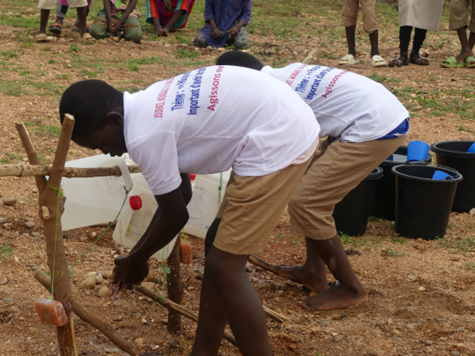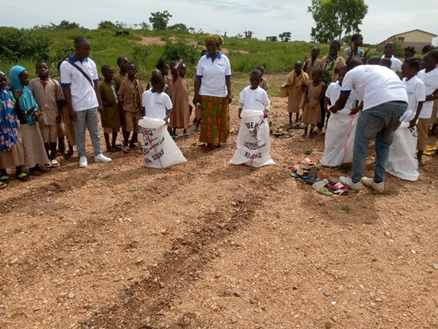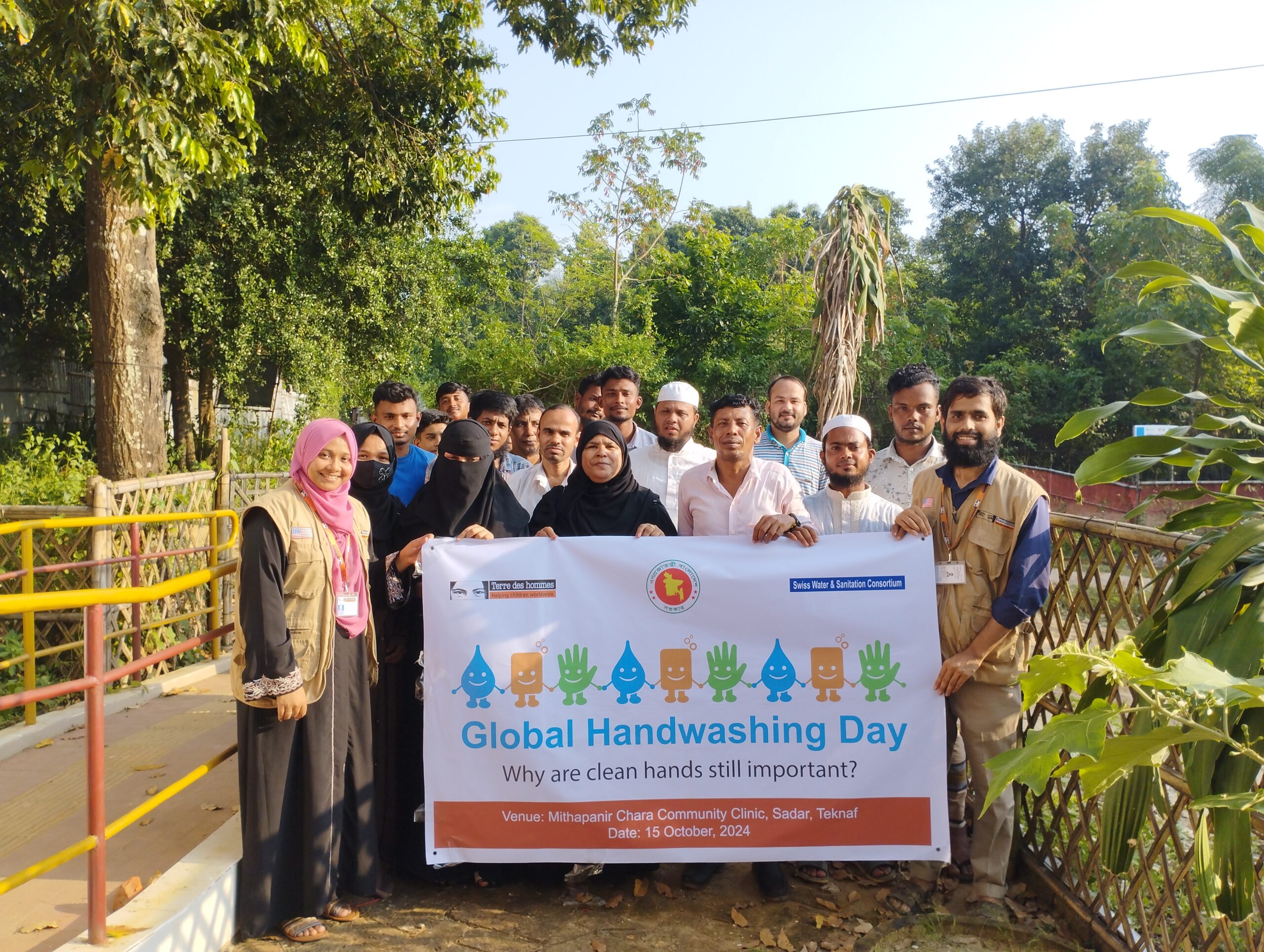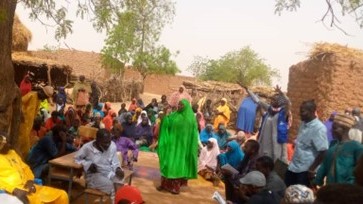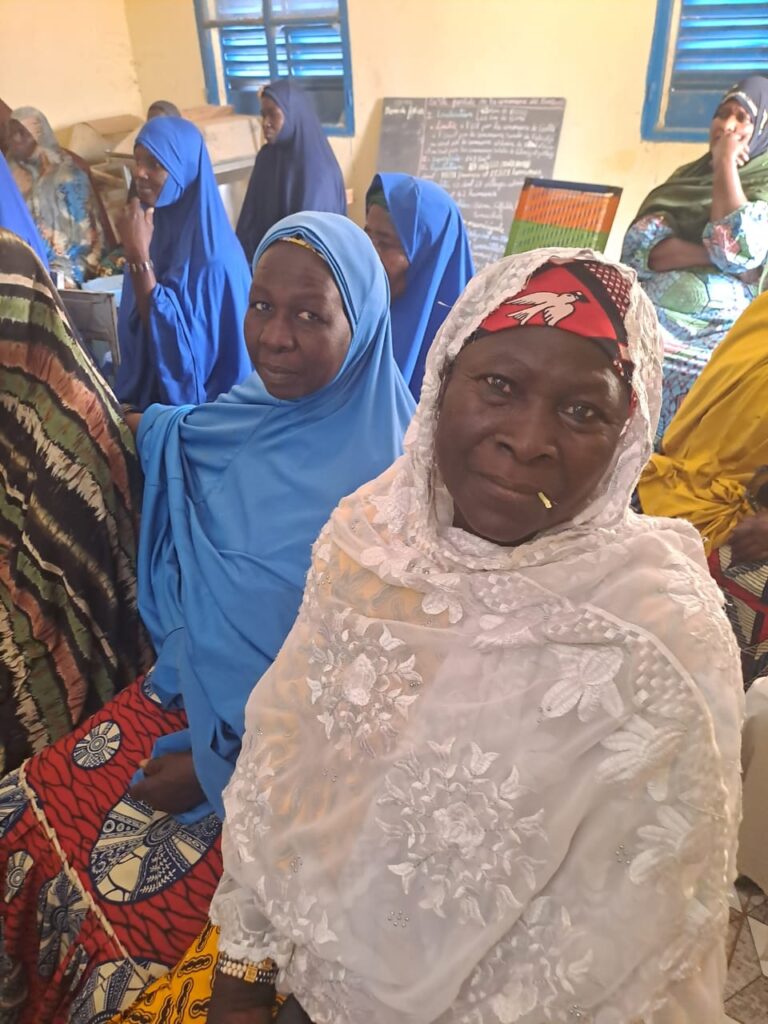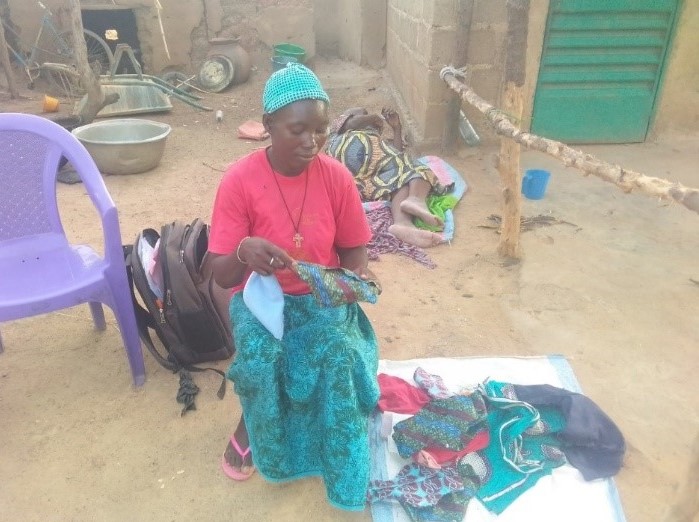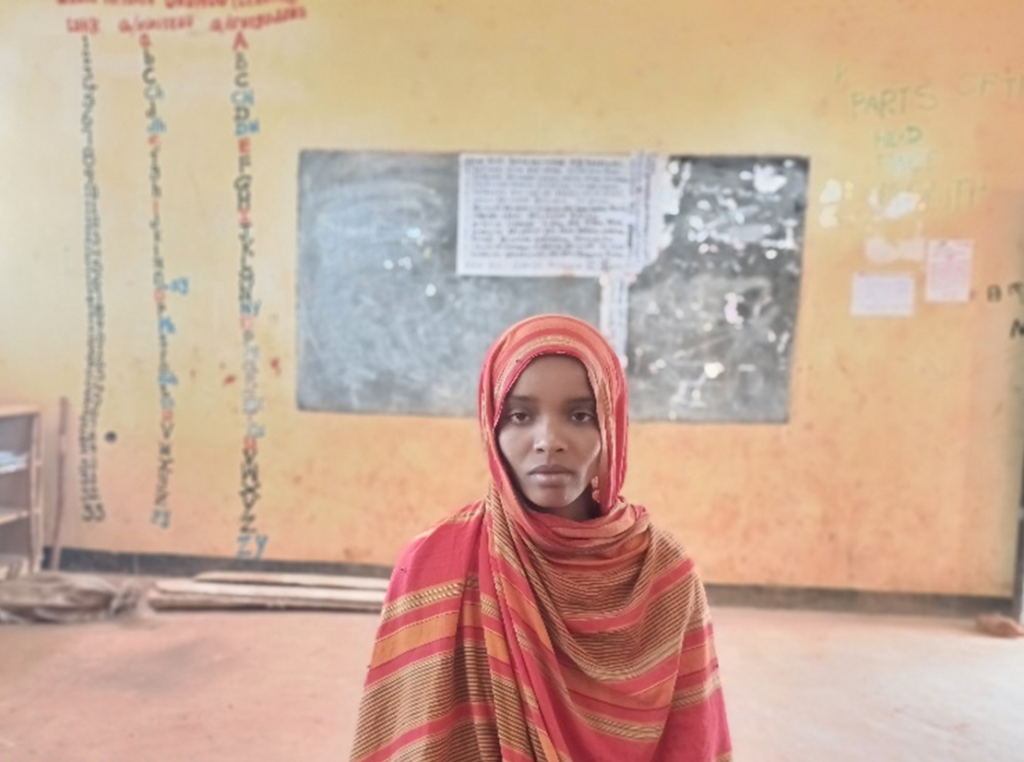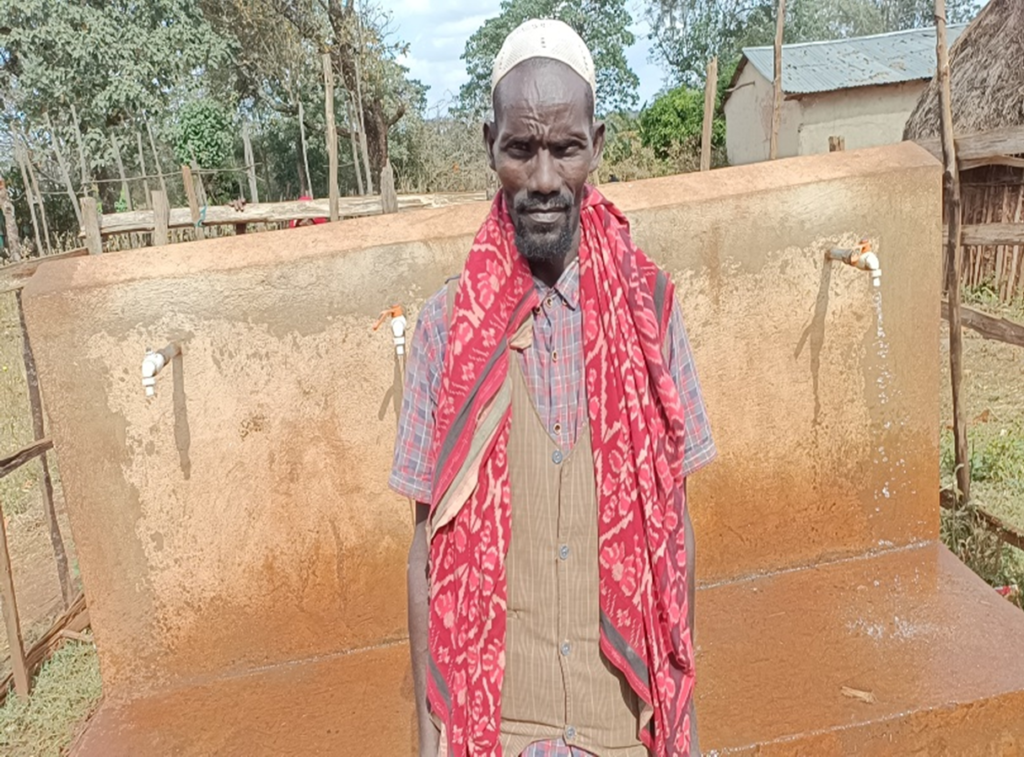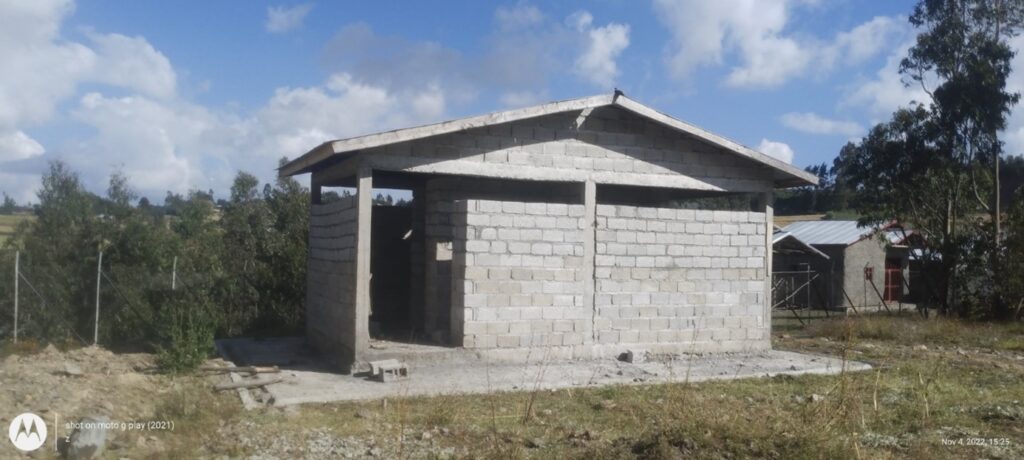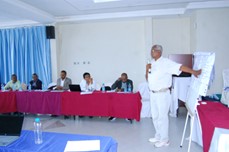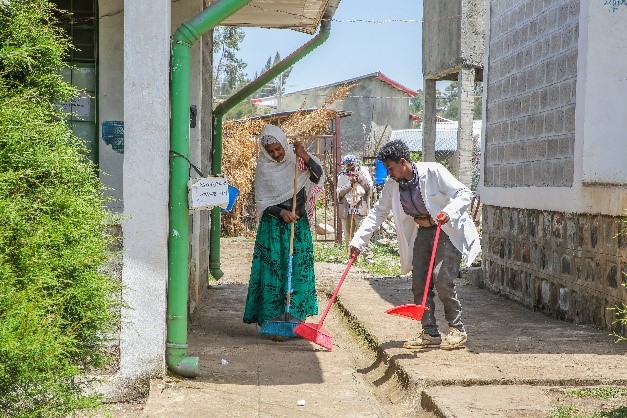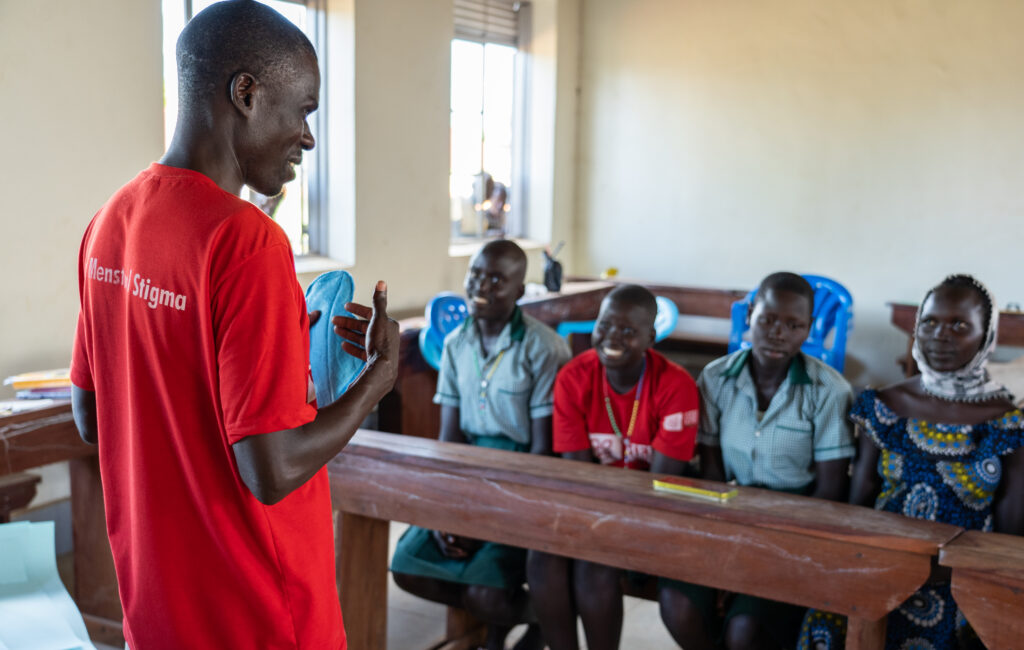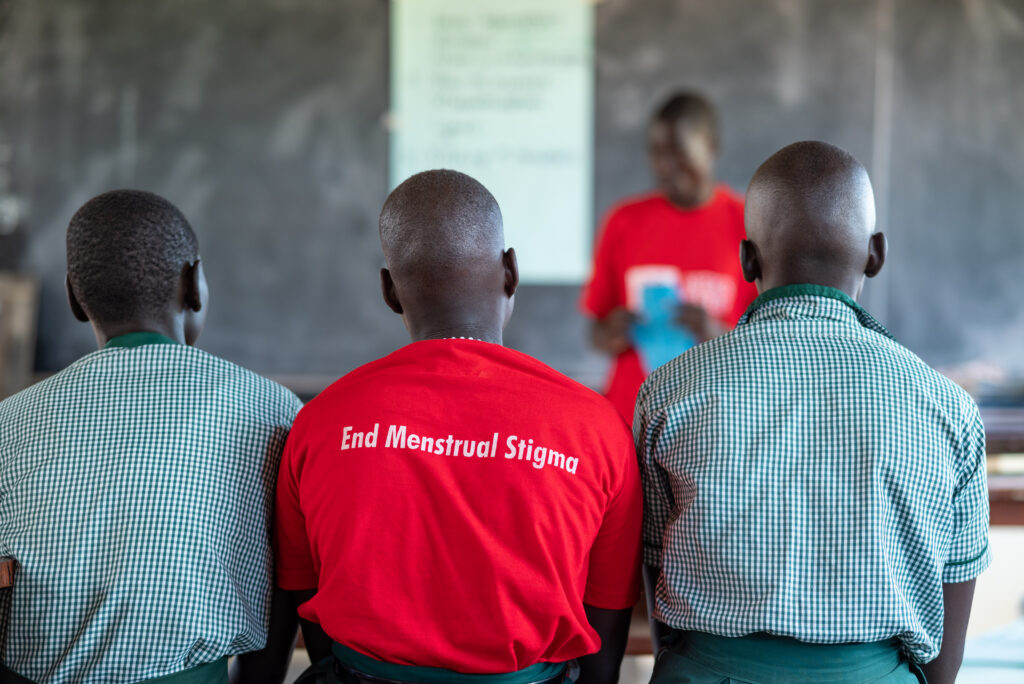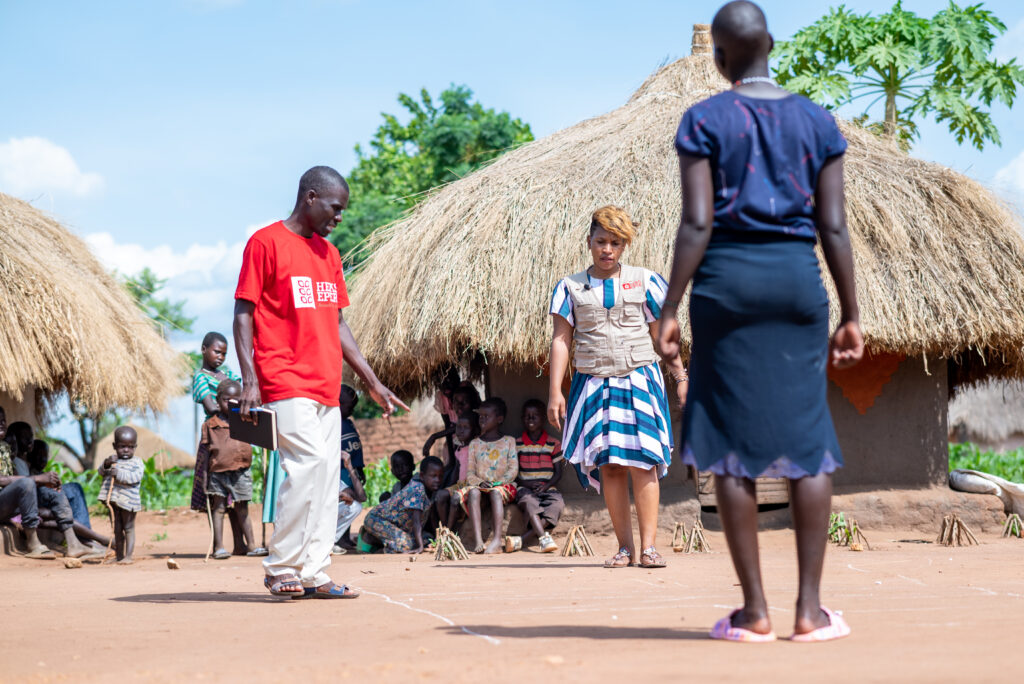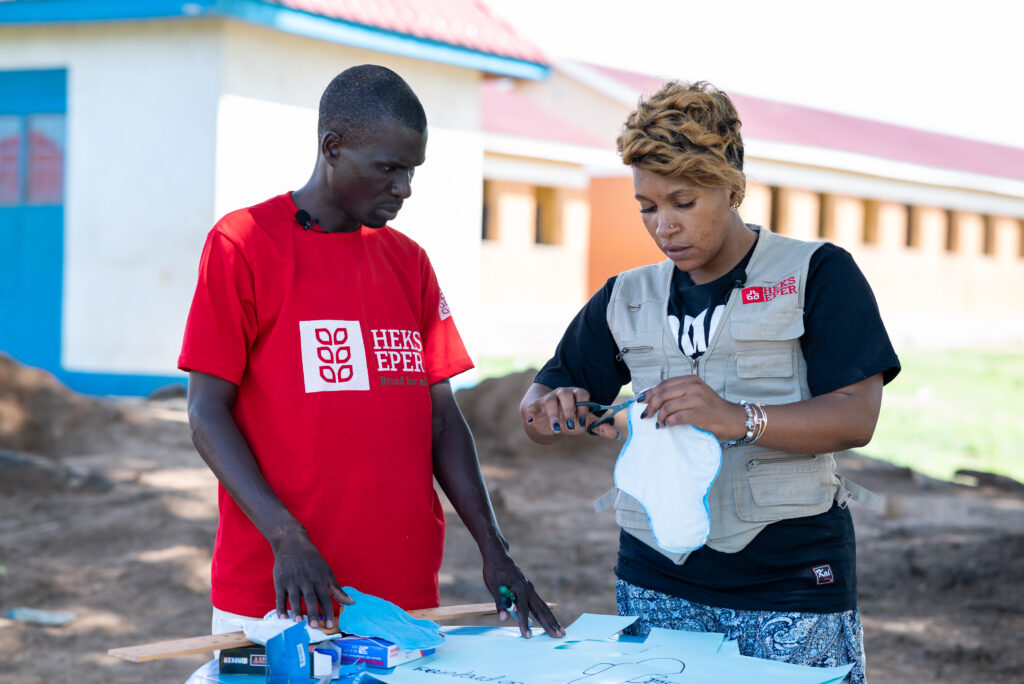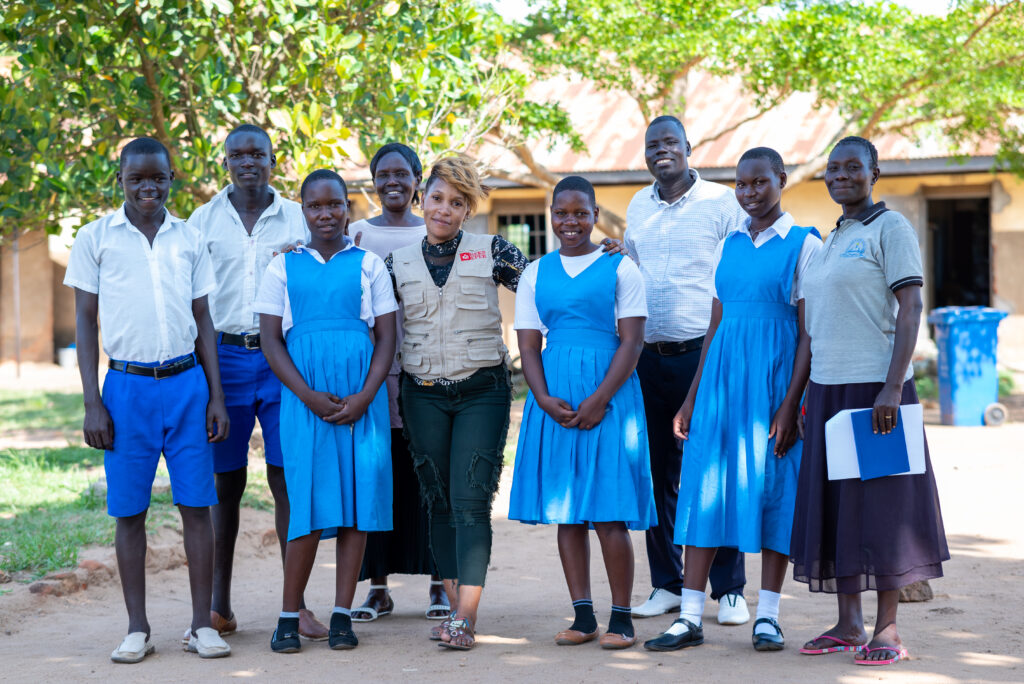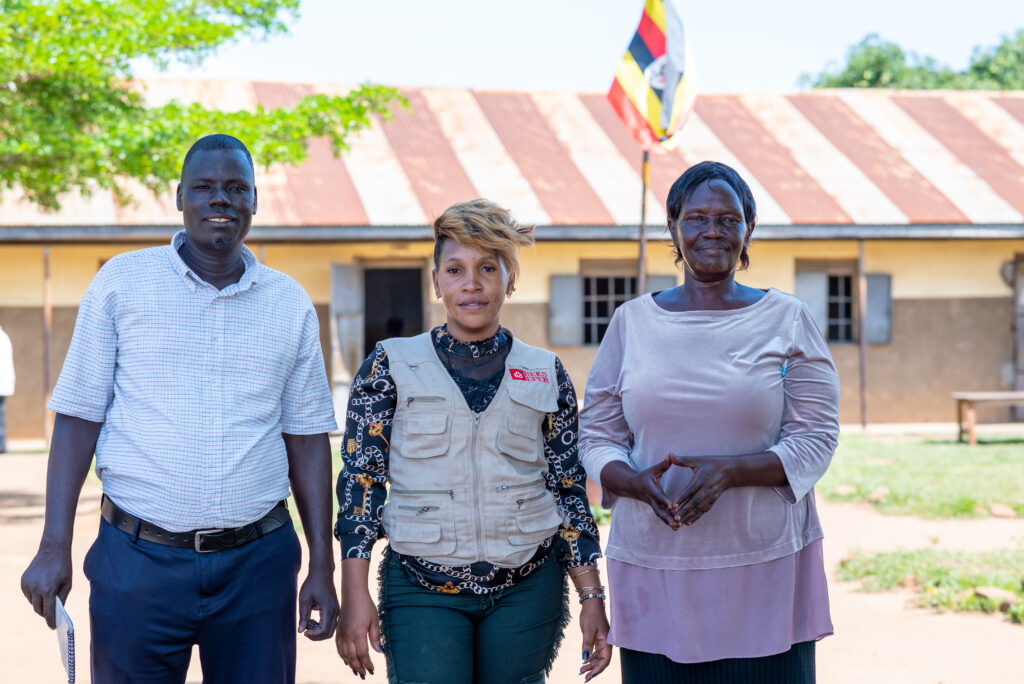(version français ci-dessous)
Authors: Mr. Tanmoy Das, Sr. Program Officer - Health & WASH, and Ms. Tanvi Chattoraj, Monitoring, valuation and Learning Manager, Terre des hommes Foundation, India
Photo credits: Terre des hommes Foundation, India
Sepsis is a leading cause of maternal and newborn mortality, with a significant number of cases linked to healthcare-associated infections (HAI). In low- and middle-income countries, the strain on healthcare facilities has negatively affected both the quality of care and the birth environment, particularly in terms of infection prevention and control (IPC) and HAIs. Studies show that hospital cleanliness plays a crucial role in reducing HAI rates, and maintaining good hand and environmental hygiene is essential for quality care. However, those responsible for keeping healthcare environments safe and clean often go unrecognized as part of the healthcare workforce.
In India, the saying "Cleanliness is next to Godliness" is commonly promoted, yet culturally and socially, sanitation workers are often stigmatized. Per government sources[1], 92% of workers engaged in hazardous cleaning roles belong to communities which have traditionally been assigned the lowest value in the community (Scheduled Caste), are socially and/ or educationally underprivileged (backward class community) or are indigenous (Scheduled Tribe). Caste realities have historically dictated occupational boundaries and societal sanctions, as a result, cleaning workers, belonging to marginalized communities, are often invisible and dehumanized. They face low status within healthcare facilities, societal marginalization, and receive inadequate training, low pay, and poor working conditions. As custodians of cleanliness in the health care facilities that are at the bottom of the hierarchy, the ill treatment faced by cleaners is two pronged: from other staff members within the facility as well as patients and caregivers.
Terre des hommes, with the support of the Swiss Water and Sanitation Consortium (SWSC), is implementing Project Arogya Swasthyakendra (Lit. translated as healthy health care facility), which aims to enhance infection prevention and control (IPC) in healthcare facilities by improving water, sanitation, and hygiene services. A key component of the project is the capacity building of cleaning service providers, who play a vital role in maintaining hygiene. In collaboration with district health authorities, Tdh has organized training programs for these workers, focusing on IPC and cleaning procedures. Despite many cleaners having worked in healthcare facilities for over a decade, they have never received formal training.
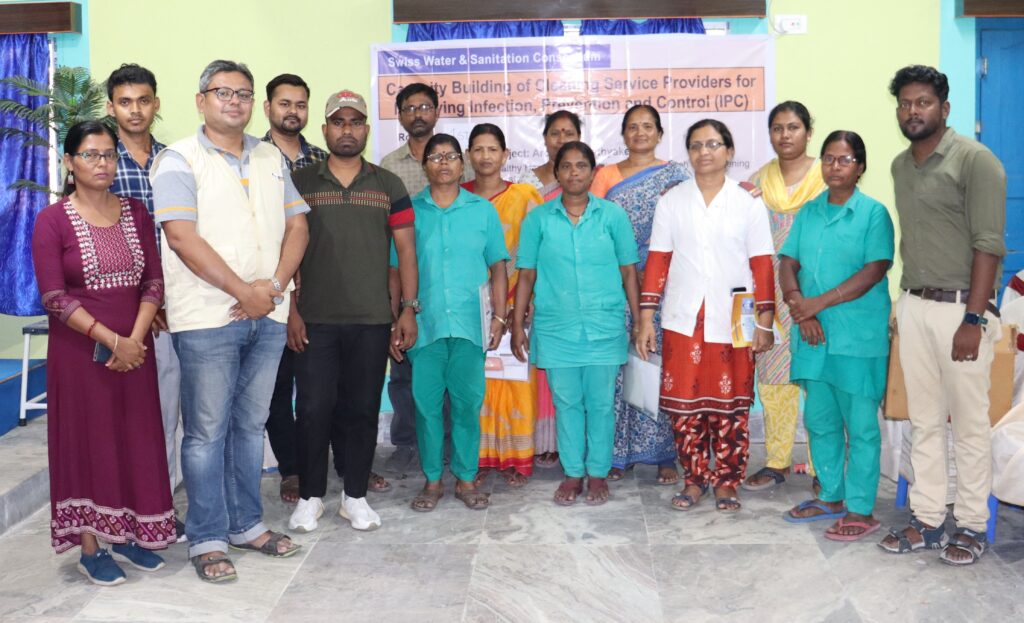
During one such training program organised by Tdh, the team encountered a poignant moment when a cleaner hesitated to sit on the chairs provided for the training participants. When asked about it, she tearfully explained, "Our role is to clean the dust and litter under the chairs; we have never been asked, nor have we ever thought of sitting on one." This statement reflects the deep-rooted stigma and discrimination cleaners, especially women, endure in their roles, which gets internalized and embodied in their perception of self. It highlights the profound marginalization they face, not just in the workplace but also in how they are perceived and treated within society.
The intersection of occupation, caste, and gender results in a complex web of social relationships that constitute lived experiences. Nearly half of the cleaning workforce in the health care facilities are female, and in a patriarchal society the power imbalance experienced by female cleaners is augmented by their caste and gender identities. They often face gender-based discrimination, particularly regarding the distribution of workload at their workplaces and at home. Therefore, they often continue to face the double burden of labor despite being earning members of the household. Additionally, cleaners are marginalized and are not recognized as an integral part of the healthcare facility workforce. The lack of safety nets at the workplace, which is often unregulated and contractual in nature, implies a complete disregard for cleaners’ well-being and security, particularly of female cleaners, even when they fall victim to gender based violence. In a powerful account, a female cleaner expressed her difficulty in cleaning cobwebs within the health facility due to chronic neck pain caused by prolonged exposure to domestic violence. She explained how years of physical injury suffered by her had rendered her unable to lift her head and look up for long durations. This heartbreaking account underscores the hardships of their work and the violence they endure at home.
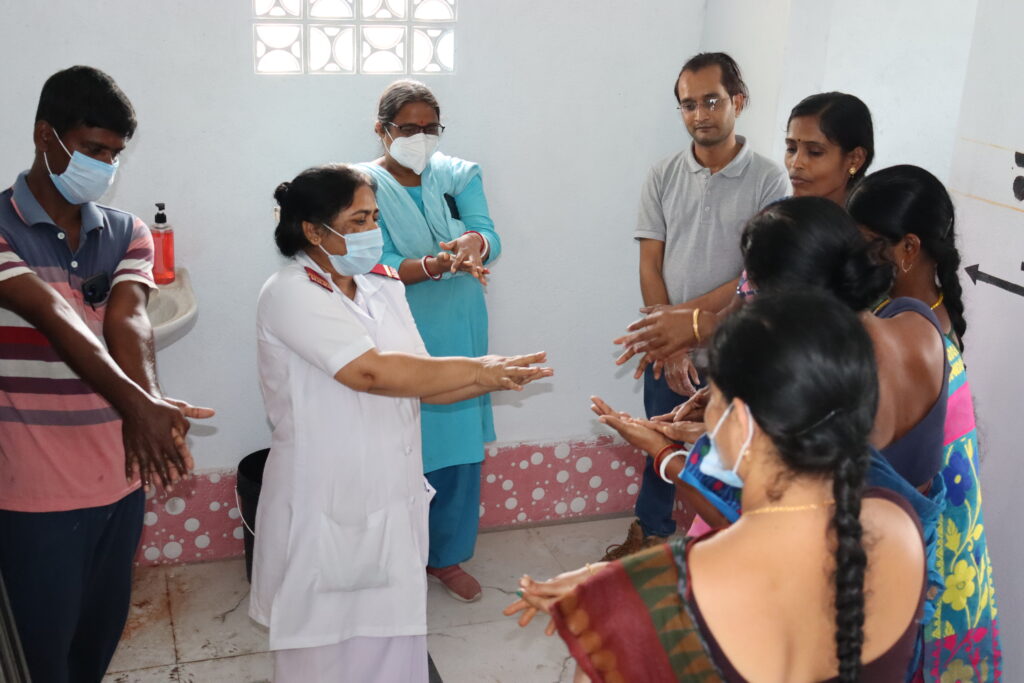
The interventions with cleaning service providers through the Arogya Swasthyakendra project is seeking to bring this marginalized and stigmatized segment of the healthcare workforce into the mainstream. By doing so, the project has taken an important step towards fostering a sense of empowerment among these workers, addressing their long-standing social exclusion, and visualizing their critical role in maintaining hygiene in our healthcare facilities.
[1] https://www.thehindu.com/news/national/92-of-workers-cleaning-urban-sewers-septic-tanks-are-from-sc-st-obc-groups/article68697861.ece
Adrishya Shakti - Les nettoyeurs, la main-d'œuvre invisible
Auteurs: Mr. Tanmoy Das, Sr. Program Officer - Health & WASH, and Ms. Tanvi Chattoraj, Monitoring, valuation and Learning Manager, Terre des hommes Foundation, Inde
Crédit photo: Terre des hommes Foundation, Inde
La septicémie est l'une des principales causes de mortalité maternelle et néonatale, un nombre important de cas étant lié aux infections associées aux soins de santé (IAS). Dans les pays à revenu faible ou intermédiaire, la pression exercée sur les établissements de santé a eu un impact négatif sur la qualité des soins et l'environnement de l'accouchement, notamment en termes de prévention et de contrôle des infections (IPC) et d'IAS. Des études montrent que la propreté des hôpitaux joue un rôle crucial dans la réduction des taux d'IAS et que le maintien d'une bonne hygiène des mains et de l'environnement est essentiel à la qualité des soins. Cependant, les personnes chargées de veiller à la sécurité et à la propreté des environnements de soins ne sont souvent pas reconnues comme faisant partie du personnel de santé.
En Inde, le dicton "La propreté est proche de la piété" est communément promu, mais culturellement et socialement, les travailleurs de l'assainissement sont souvent stigmatisés. 92 % des personnes exerçant des fonctions de nettoyage dangereuses appartiennent à des castes répertoriées ou à des communautés auxquelles on attribuait traditionnellement la valeur la plus basse dans l'ordre de stratification sociale, aujourd'hui proscrit (69 %), à des tribus répertoriées ou à des communautés indigènes (8 %) et à d'autres classes arriérées en raison de leur retard social ou éducatif (15 %), d'après des sources gouvernementales.[1] Les réalités de la caste ont historiquement dicté les limites professionnelles et les sanctions sociétales, de sorte que les travailleurs du nettoyage, qui appartiennent à des communautés marginalisées, sont souvent invisibilisés et déshumanisés. Ils ont un statut inférieur dans les établissements de santé, sont marginalisés par la société, reçoivent une formation inadéquate, sont mal payés et travaillent dans de mauvaises conditions. En tant que gardiens de la propreté dans les établissements de santé qui se trouvent au bas de l'échelle hiérarchique, les nettoyeurs sont victimes de mauvais traitements à deux niveaux : de la part des autres membres du personnel de l'établissement et de la part des patients et des soignants.
Terre des hommes, avec le soutien du Consortium suisse pour l'eau et l'assainissement (SWSC), met en œuvre le projet Arogya Swasthyakendra (Lit. traduit par établissement de soins de santé sain), qui vise à renforcer la prévention et le contrôle des infections (IPC) dans les établissements de soins de santé en améliorant les services d'eau, d'assainissement et d'hygiène. Un élément clé du projet est le renforcement des capacités des prestataires de services de nettoyage, qui jouent un rôle essentiel dans le maintien de l'hygiène. En collaboration avec les autorités sanitaires des districts, Tdh a organisé des programmes de formation pour ces travailleurs, en mettant l'accent sur les IPC et les procédures de nettoyage. Bien que de nombreux nettoyeurs aient travaillé dans des établissements de santé pendant plus de dix ans, ils n'ont jamais reçu de formation formelle.

Lors d'une formation organisée par Tdh, l'équipe a vécu un moment poignant lorsqu'une femme de ménage a hésité à s'asseoir sur les chaises mises à disposition des participants à la formation. Interrogée à ce sujet, elle a expliqué en larmes : "Notre rôle est de nettoyer la poussière et les détritus sous les chaises ; on ne nous a jamais demandé et nous n'avons jamais pensé à nous asseoir sur une chaise". Cette déclaration reflète la stigmatisation et la discrimination profondément enracinées que les agents d'entretien, en particulier les femmes, subissent dans leur rôle, et qui sont intériorisées et incarnées dans la perception qu'ils ont d'eux-mêmes. Elle met en évidence la profonde marginalisation à laquelle ils sont confrontés, non seulement sur le lieu de travail, mais aussi dans la manière dont ils sont perçus et traités au sein de la société.
L'intersection de la profession, de la caste et du genre se traduit par un réseau complexe de relations sociales qui constituent des expériences vécues. Près de la moitié des agents d'entretien des établissements de santé sont des femmes et, dans une société patriarcale, le déséquilibre de pouvoir auquel elles sont confrontées est accentué par leur appartenance à une caste et leur identité de genre. Elles sont souvent confrontées à une discrimination fondée sur le sexe, notamment en ce qui concerne la répartition de la charge de travail sur leur lieu de travail et à la maison. Par conséquent, elles continuent souvent à faire face à la double charge de travail bien qu'elles soient des membres du ménage qui gagnent de l'argent. En outre, les femmes de ménage sont marginalisées et ne sont pas reconnues comme faisant partie intégrante du personnel des établissements de santé. L'absence de filets de sécurité sur le lieu de travail, qui est souvent non réglementé et contractuel par nature, implique un mépris total du bien-être et de la sécurité des agents d'entretien, en particulier des femmes, même lorsqu'elles sont victimes de violences basées sur le genre. Dans un témoignage saisissant, une femme de ménage a fait part de ses difficultés à nettoyer les toiles d'araignée dans l'établissement de santé en raison de douleurs cervicales chroniques causées par une exposition prolongée à la violence domestique. Elle a expliqué que les blessures physiques qu'elle avait subies pendant des années l'avaient rendue incapable de lever la tête et de regarder en l'air pendant de longues périodes. Ce récit déchirant souligne les difficultés de leur travail et la violence qu'elles subissent à la maison.

Les interventions auprès des prestataires de services de nettoyage dans le cadre du projet Arogya Swasthyakendra visent à intégrer ce segment marginalisé et stigmatisé du personnel de santé dans le courant dominant. Ce faisant, le projet a franchi une étape importante dans la promotion d'un sentiment d'autonomie parmi ces travailleurs, en s'attaquant à leur exclusion sociale de longue date et en visualisant leur rôle essentiel dans le maintien de l'hygiène dans nos établissements de soins de santé.
[1] https://www.thehindu.com/news/national/92-of-workers-cleaning-urban-sewers-septic-tanks-are-from-sc-st-obc-groups/article68697861.ece

